My time here in Stanley is drawing to a close. The last six weeks have easily been some of the most memorable experiences of my life so far. I feel I have been utterly immersed in rural medicine right from the start, and boy have I loved it. During my stay here I have been able to dabble in General Practice, General Medicine, Emergency and Trauma Medicine, General Surgery and Anaesthesia with the resident doctors, Dermatology, Paediatrics and Orthopaedics with visiting specialists and even a bit of Dentistry thrown in for good measure. I think I learnt more about oral medicine in the two hours I was with the dentist than in the last five years of my degree!!
During my stay here I have been able to dabble in General Practice, General Medicine, Emergency and Trauma Medicine, General Surgery and Anaesthesia with the resident doctors, Dermatology, Paediatrics and Orthopaedics with visiting specialists and even a bit of Dentistry thrown in for good measure. (I think I learnt more about oral medicine in the two hours I was with the dentist than in the last five years of my degree!!).
Everyday was filled with learning opportunities which I strived to grab with both hands. I learnt about many conditions I had never seen before. I had endless opportunities to improve my practical skills such as cannulisation, intubation, reducing fractures and dislocations, plastering and suturing. I scrubbed in and assisted on numerous operations. I was actively involved in trauma management and acute resuscitation and also assisted many helicopter and ambulance patient transfers. On top of all this my consultation and examination skills have continuously improved due to the sheer number of patients I was able to interact with everyday.These perks are very similar to what I enjoyed in fifth year as part of the Rural Medical Immersion Programme. It comes down to the fact that as a medical student in a rural setting you get treated more like a junior doctor, are given more responsibility and therefore get much more one on one time with patients. There is no better way of learning than doing it on the job. I have always found that I remember diseases and treatments much easier if I have come across a patient with that particular presentation. Hence why my elective here in the Falklands has been such a valuable learning experience for me.
Unfortunately it appears not everyone has a passion for rural medicine! Rural Health is notorious for being under-staffed. Too many doctors are specialising early and we are seeing an increase in super-specialists and a decline in the number of generalists. Rural health especially is lacking in doctors. This is a problem I have come across not only in New Zealand but also during a two-week placement in rural Australia and here in the Falklands too.
The under-staffing issue was highlighted here last week. We were three doctors down due to two being away on leave and another’s contract finishing with a delay before the next GP starts. Everything went fine for a couple of days until a fisherman in the middle of an acute psychiatric episode was dumped ashore. After terrorising several residents over the morning he was detained and then brought to the hospital for the night. He continued to act in a threatening manner and proceeded to damage his hospital room.
Eventually we had to sedate him and arrange for him to be transferred out to a secure acute psychiatric facility. All this occurred over three days in which the SMO’s time and energy was completely taken up by administration and emergency meetings with government, police and various other agencies. Effectively we were another doctor down which left just two GPs.
Add into the mix a pregnant woman whose waters broke prematurely, two fishermen with bilateral frostbite of the hands, a fisherman who degloved his entire arm, a gentleman with ongoing pyrexia of unknown origin who also needed transferring out and three other acute medical admissions. KEMH really was stretched to near-breaking point. One of the remaining GPs had to cancel all his appointments to cover casualty and the ward which meant we had four days with only one GP seeing patients when we usually have four to five. Primary care got put on the back burner. Understaffed?? I think so!
Doctors here in The Falklands are recruited via locum agencies for a minimum of 3 month contracts. You only have to spend five minutes looking back through a patient’s electronic records to see the high turnover of doctors that go through KEMH. So I asked some of the doctors what they thought the issues are when it comes to retaining staff here in the Falklands.
Usually the main turn-offs are the workload and pay. However here the doctors all said they enjoy their work. Like I have said numerous times it is diverse, varied and interesting. They feel the hours are perfectly reasonable with not too much time on call. The pay is very good for locums however it gets cut significantly if you sign a permanent or long-term contract. This, I feel does not make sense. Surely those who commit to the Falklands should be rewarded for that commitment?Often doctors shy away from rural practice due to the lack of professional development opportunities. I don’t know how well prospective employees are informed on this area but there are many continuing education opportunities at KEMH. There is a high rate of visiting specialists who all run education seminars and teaching clinics for the doctors.
Interestingly, the doctors I spoke to who weren’t keen on coming back in the future said it was the little things that turned them away. Old, rundown accommodation which is shared with three to four other hospital staff, not of your choosing. No access to a vehicle unless you’re on call (in which case you can’t go anywhere anyway!). Terribly slow and expensive internet. All quite trivial things which would be easily remedied and make living in the Falklands much more enjoyable and attractive.
I also think they need to encourage young Falkland Islanders to pursue a career in medicine. Much like the RMIP programme is resulting in students becoming more likely to become rural practitioners, the more Falkland Islanders becoming health professionals the more likely some if not all will come back here to work. Provided you pay them at least equally to the locums!!
Personally, I really do I hope I am able to come back to the Falklands to work one day. (After mentioning this to a few people and receiving very enthusiastic responses I was surprised I was allowed to leave the hospital without signing a binding contract!). I felt the opportunities the doctors get are exactly what I am looking for – mostly general practice but with a bit of ED and ward management thrown in too. My heart is of course firmly bound to New Zealand and I will most certainly settle there but I have the feeling that I want to give something back to KEMH for the fantastic experiences I have had. And not just a stuffed toy kiwi to remind them of me!! Like all of my blogs have mentioned it was not all about the medicine. I have been able to explore several of the islands but each one is different and has something unique to offer so I definitely feel there is further territory for me to come back and discover.
On that note I will sign off from the Falkland Islands. With any luck some of you med students who have been reading these might be inspired to explore rural medicine further down the line. I look forward to joining you on the journey. To the rest of you I highly recommend the Falklands as a place to travel to. Whether you fly straight here or visit as part of a cruise to South Georgia and Antarctica it really is an untouched part of the world with landscapes and wildlife that cannot be seen anywhere else on the planet. As I thought I better not include photos of any of the patients or dissected arms the photos accompanying this blog are a few of the thousand odd I have taken along the way. Hopefully they tempt you into considering a visit here! Next time you hear from me I will be half way around the world in Kathmandu likely overcome by the sights, sounds and smells of the subcontinent. It takes me three days and six flights to get there… wish me luck!

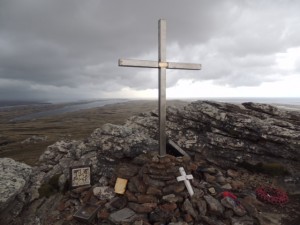
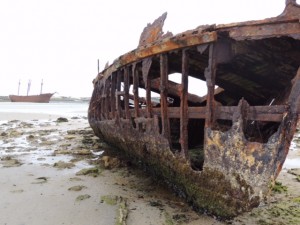
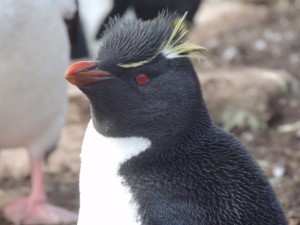
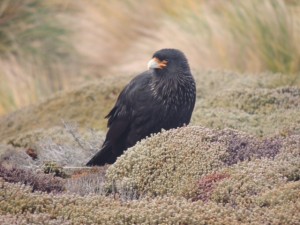
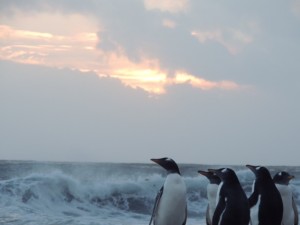
5 Comments to 'Blog 4: Farewell to The Falkland Islands by Rebecca Craw'
May 24, 2015
Such an interesting blog post!
I stumbled here because I’ve been offered a position as locum dentist in the Falklands for three months, so I’ve been reading around as much as I can.
Reading that the accomodation is old and the internet is slow doesn’t help 🙁
Are people friendly? And most of all…did you get a chance to explore the islands, alone and with colleagues?
September 14, 2015
Hi Alex,
Thanks for your comment!
Great to hear you are thinking of heading to the Falklands! There are pro’s and cons to it like everything in this world but I certainly think the pros outweigh the cons in this case. I have flicked you an email with a few of my thoughts so hope that is helpful for you.
Cheers, Rebecca
December 10, 2015
Hey,
I like your blog post!
I’ve got one question:
where did you stay during your time on the Falklandisland ? I might be going there next year for an internship and I’ll be happy to receive information about a cheap and nice accommodation.
December 14, 2015
I am interested in working in Falkland Islands. Any advice where to start from?
November 17, 2020
Hi Rebecca, this is a fantastic blog on a super interesting placement. When all returns to ‘normal’ I would be keen to spend my elective in Falklands, do you have any contacts on the islands or recommendations? I appreciate this was a while back and might not be feasible at the moment but any help would be appreciated. Many thanks, William
Leave a comment